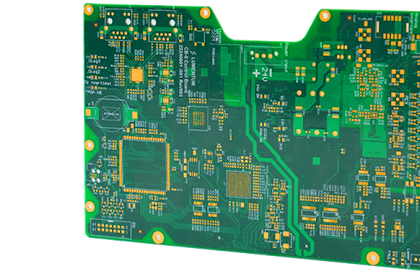In the last few years, there has been a paradigm shift in how the healthcare industry functions. The traditional “one size fits all” paradigm is being replaced with a much more nuanced and patient-centered approach. The increased complexity of diseases, surge in patient population, and rise of personalized medicine, healthcare market research and healthcare research & analytics have become critical drivers of innovation and improved outcomes. Plus, with the immense growth of the healthcare industry, businesses are slowly realizing that meaningful research cannot be done without keeping patience at the core of the importance.
Historically, healthcare research was predominantly driven by physicians, disease markers, clinical trial outcomes, and treatment efficacy. Though these remain paramount, the need to incorporate the patient perspective into research is now being recognized as a key component for both understanding patient experiences and enhancing the effectiveness of healthcare interventions.
Rethinking the Role of the Patient in Healthcare Market Research
The shift to patient-centric research is not merely a trend; now, patient-focused research insights shape decisions at every stage of the healthcare journey. From the development of new treatments to the design of healthcare services or the crafting of healthcare policies, every decision is made taking the patient’s voice into consideration. The traditional success metrics—such as clinical endpoints—are now being supplemented by qualitative insights into patient satisfaction, adherence to treatment plans, and quality of life. This shift opens up a wealth of new research opportunities previously underexplored or underappreciated.
The Power of Patient-Reported Outcomes (PROs)
One of the most used and key methodologies of patient-centric research is the use of Patient-Reported Outcomes (PROs). In this method, the tool considers a patient’s self-reported health status and experiences, allowing researchers to gauge the direct impact of disease and treatment from the patient’s perspective. It is integral in assessing the effectiveness of new drugs, treatments, and healthcare services.
Leveraging PRO in healthcare research & analytics provides a real-time view of patient needs and preferences, simultaneously enriching clinical trials. For example, while a clinical trial may demonstrate that a drug lowers blood pressure, a PRO may reveal that patients experience debilitating side effects that reduce their quality of life. This insight becomes paramount for pharmaceutical companies and healthcare providers looking to refine treatments and improve patient adherence and satisfaction.
Moreover, by continuously analyzing patient feedback, healthcare organizations can identify gaps in current care models, anticipate needs, and optimize the design of future therapies.
Data-Driven Insights: The Role of Healthcare Research & Analytics
The integration of healthcare market research and analytics tools in patient-centric research has paved the way. Today’s advanced analytics platforms, created by market research firms and powered by AI and machine learning, allow healthcare professionals to sift through vast amounts of patient data to identify patterns and trends that might otherwise go unnoticed.
By utilizing analytics, researchers can uncover hidden factors that influence patient outcomes, such as socioeconomic status, mental health, lifestyle choices, and cultural considerations. These insights can inform both clinical practice and healthcare policy, ensuring that treatments and interventions are not just effective but also accessible and relevant to diverse populations.
Moreover, patient-centric research continues beyond clinical trials. It can have profound implications for the broader healthcare system, from policy reform to delivering healthcare services. One critical point is that by incorporating patient perspectives into the design of care pathways, healthcare systems can become more responsive to the needs of the populations they serve. For instance, in digital health, patients’ feedback can drive the development of patient-friendly apps, wearable devices, and telemedicine platforms that offer more seamless and convenient healthcare experiences. Additionally, health insurers can leverage insights from patient-centric research to craft better insurance plans that address the real-world needs of their members rather than simply offering generic packages.
The Role of Market Research Companies in Enabling Patient-Centric Research
The demand for patient-centric research has given rise to an ecosystem of specialized research tools and platforms. One of the key challenges in gathering patient data, however, is reaching diverse patient populations in a way that is representative and reliable. Here, solutions such as those provided by healthcare market research firms like Borderless Access come into play. By offering access to hard-to-reach patient segments through robust digital platforms and advanced analytics, they enable healthcare researchers to collect valuable patient insights from diverse geographies and demographics. This ensures that patient-centric research is truly inclusive, covering a broad spectrum of perspectives and experiences.
Borderless Access’ global reach and data collection capabilities make it easier for healthcare professionals to gain a more complete picture of patient needs across different regions, facilitating a more comprehensive approach to market research. Their solutions help streamline the process of gathering patient feedback, ensuring that the insights generated are both relevant and actionable.
With advancements in healthcare market research and healthcare research & analytics, we now have the tools to create a healthcare ecosystem that is not only more responsive to patient needs but also more effective and equitable.





![How to Style a Tennis Bracelet for a Perfect Chic Look [Timeless & Elegant Styling Ideas]](https://timelymagazine.co.uk/wp-content/uploads/2026/01/unnamed-2026-01-21T095644.608-150x150.png)


